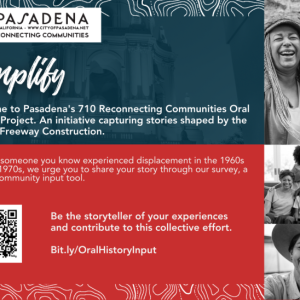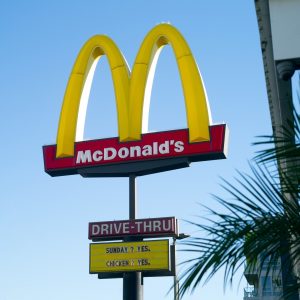 View Winners →
View Winners → Council Hesitant to Place 710 Freeway on November Ballot

Despite their rejection of Tornek’s recommendation, it was clear that council opposes the 710 Tunnel Project. – Photo by Terry Miller
Mayor Anxious to Free City from Restraints of Measure A as Soon as Possible
By Gus Herrera
At their regular meeting on Monday, June 13, the Pasadena City Council chose not to move forward with a recommendation proposed by Mayor Terry Tornek.
Item 16 on the agenda would have directed “the city attorney to prepare the necessary resolutions calling a Special Election on Nov. 8, 2016 to repeal Measure A, and any related documents in connection therewith.”
Measure A, which was passed in 2000 with 9,654 votes in favor (58 percent), formally aligned city interests with the completion of a “710 Freeway extension.” Sixteen years later, the people of Pasadena and its mayor are clearly on the other side of the fence on the matter.
Tornek’s efforts were meant to protect the city from any future advances made by Metro to build a tunnel that would complete the 710 Freeway.
For years, the City of Pasadena has wrestled with the idea of connecting the I-10 Freeway, which ends in Alhambra, to the I-210 Freeway, which ends a block from Huntington Hospital at the intersection of St. John Avenue and West California Boulevard.
Theoretically, the idea of linking these two major arteries, which shuttle thousands of LA commuters back-and-forth every single day, seems practical. Yet, when you actually take out a map and begin drawing lines, it soon becomes clear that this connection is seemingly impossible without disrupting the essence and integrity of several Pasadena (and some Northeast Los Angeles) neighborhoods.
According to city staff’s report, this subject’s origins trace back to 1998, when “the Federal Highway Administration (FHA) approved a plan to complete the 710 Freeway between the I-10 Freeway in Alhambra and the I-210 Freeway in Pasadena.” This initial thrust failed when it was shut down by a federal judge, in response to overwhelming residential outcry.
A couple years later, the Pasadena City Council switched sides and joined the residents, when they “adopted Resolution No. 7865, reversing prior city support for the 710 Freeway extension and resolving that ‘the City of Pasadena opposes the completion of construction of the 710 Freeway through Pasadena,’” according to staff’s report.
In response to council’s stance, proponents of the 710 Freeway extension circulated a petition, which received enough signatures to make the ballot and eventually came to be known as Measure A, which the mayor is anxious to repeal.
Despite the victory at the polls, public opinion swayed and the freeway extension continued to be highly controversial. In 2003, similar to council, the FHA, too, changed sides and “suspended its support of the plan and ordered state officials to conduct a new environmental impact study of the project.”
Five years later, in November 2008, voters approved Measure R, which granted Metro a wealth of funds to support transportation projects. As a result, talks concerning the 710 Freeway Extension began to boil, yet again.
In 2012, Metro presented the city council with several new alternative ways to connect the 210 and 710 Freeways. Alternatives included an “Arterial Road along Avenue 64,” a “Highway along Huntington Drive/Fair Oaks Avenue,” and a “Freeway Tunnel.”
Council rejected these propositions, “citing ‘detrimental impacts to the City of Pasadena, its residents, historical residential neighborhoods, schools, business, families, and children,’” according to city staff’s report.
Metro chose to disregard council’s decision and, a few weeks later, they included the tunnel alternative in a project list submitted for an Environmental Impact Report.
According to staff’s report and Tornek, it is anticipated that Metro will re-double their efforts following this upcoming November’s elections, when they expect Measure R2, a long-term transportation tax, to pass: “It appears that as soon as the Measure R2 is resolved, efforts to move the 710 project ahead will be resumed with some vigor. Both the San Gabriel Valley Council of Governments and the incoming Metro Chair are strong proponents of the project.”
In order to counter any potential future advances, the mayor added Item 16 to the night’s agenda, “My concern is that because of Measure A, Pasadena will be unable to allocate adequate resources to defeat that proposal,” he said. “We will be severely disadvantaged and if we do have to move to a ballot decision, it will be too late … This project poses such a threat to our city, that we cannot be caught with one hand behind our back, which I believe we have now.”
Tornek’s pre-emptive strike is supported by legal advice the city received in 2012 from Frederic Woocher, of the law firm Strumwasser & Woocher, an expert in California Election law. According to staff’s report, Woocher advised, “that the text of Measure A prohibits the city from taking a position against completion of any freeway proposals that would connect the I-10 and I-210 Freeways … Woocher concluded that if the city council wished to take a position or to advocate against any of the proposals for extending the 710 Freeway, such as the proposed Freeway Tunnel alternative, it should submit a ballot measure to the voters to amend or repeal Measure A.”
Not all council members were on board with Tornek’s rationale. Council Member Steve Madison was particularly vocal, “I was perplexed by this initiative … this is very risky and it’s unnecessary.” Madison reminded everyone that the city already technically opposes a “Tunnel Alternative,” citing a council decision from April 13, 2015. He added, “There is no enthusiasm at Metro for this project … I don’t see any imminent threat that is precipitating this action now.”
Council Member Victor Gordo was also hesitant, saying that he was “not comfortable with the level or risk that a November ballot presents … it is risky to go forward in November without understanding legal implications, the electorate, or even what we are up against, in terms of a counter-campaign.”
Council Members John Kennedy and Margaret McAustin argued in favor of letting the people decide, but they too were not comfortable with moving for a November election, without more legal briefings. Council Member Tyrone Hampton and Tornek were the only two in favor of approving the item.
Ultimately, Tornek deferred action on Item 16. There will be a closed session next Monday, June 17, where council will be brought up to speed on the legal details of the case. The item will be re-agendized and a conclusion will be made during a future open session, to be determined.
Despite this result, there was a clear consensus amongst the council that the tunnel project is not right for the city. But, for council, a November election (although still not entirely out of the question) is just too close for comfort, without further deliberation.
For more details, visit: http://ww2.cityofpasadena.net/councilagendas/council_agenda.asp.











































































































